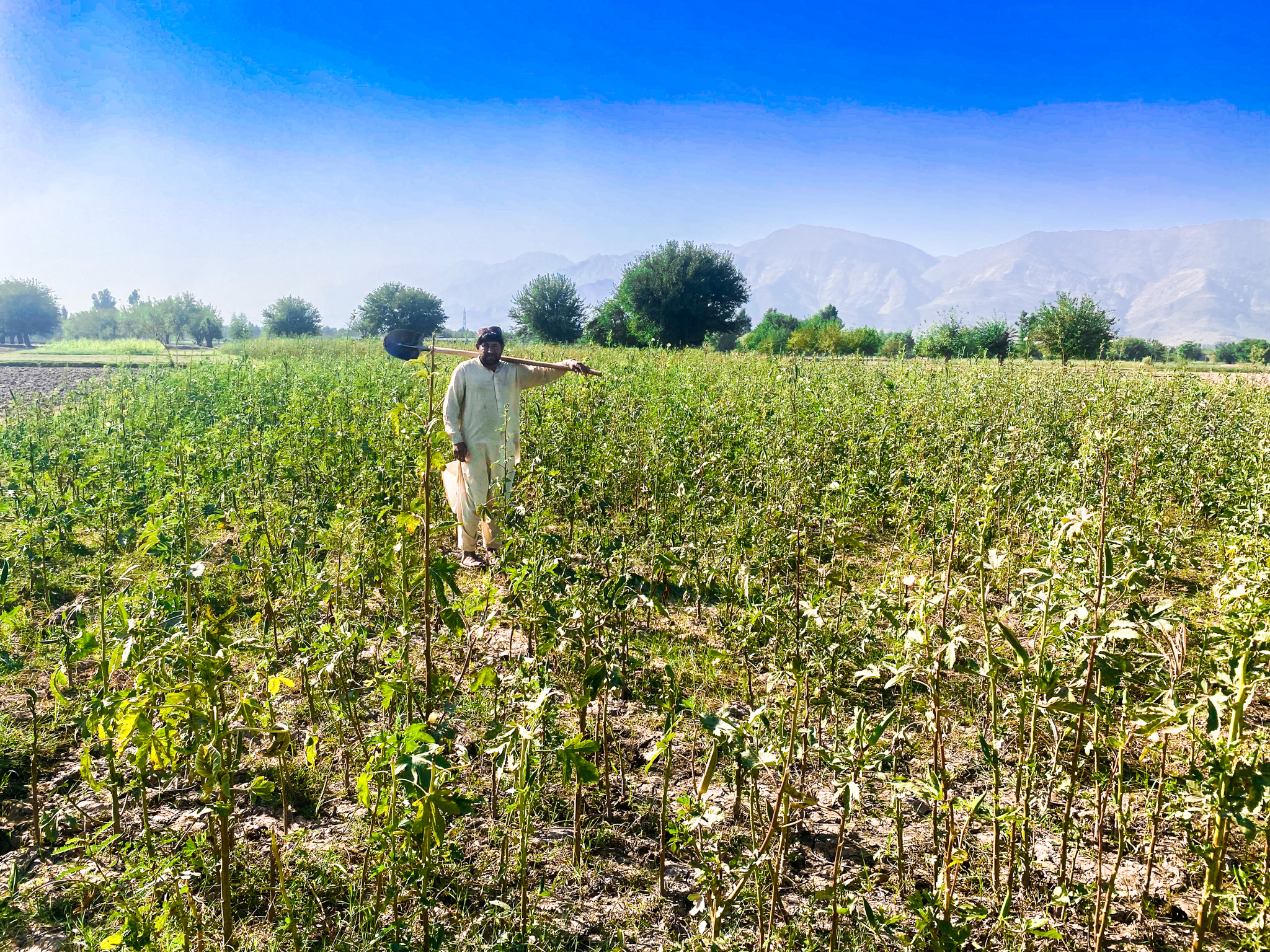Canals flow wealth to the community and work for generations.
Water is Life
November 17, 2022

Abdul Wakil standing on his Okra field in Eastern province of Nangarhar
“Farming is what feeds my family,” says Abdul Wakeel, a 40-year-old farmer in eastern Afghanistan. “Floods in this region are nothing new, but last year’s droughts were unexpected and uncontrollable to the point that I wasn’t sure if we would survive.”
Sadly, droughts and floods are all too common in Afghanistan. The country is now rated the sixth most vulnerable in the world to the effects of climate change, and the country has experienced recurring and intensifying droughts and floods for many years now. With some 85% of the entire population relying on agriculture for their livelihoods and many of the traditional social safety nets dissolved since the sudden change in power last August, some 20 million people – half the population - now face the real threat of starvation.
Agricultural infrastructure, such as canals or flood walls are a minimum requirement to protect communities and food supplies. Canals bring water to farms and communities, and provide some protection against flooding, but they need regular cleaning and maintenance to remain effective.
The rehabilitation of the Banda-e-Fatullah canal in the east of Afghanistan has been a long-pending wish for the local community. During the heavy rains, typical in the region, the muddy canal walls were the only barrier between the floods and an entire village of some 3,500 families. Sometimes canals are simple ditches dug out from the earth; in these cases, paving them with stones can reduce water wastage and maintenance costs. Controlling flow to where water is needed most is another challenge. Farmers can place sandbags to reroute the canal, but metal gates or conduits can do this more efficiently.
UNDP Afghanistan’s partner Danish Refugee Council (DRC), agreed with the community development committee that rehabilitating and strengthening the 522-meter canal lining, and adding 70 metres of road protection wall and two conduits, was a priority. Not only would the entire village be protected from the seasonal rain, but it would also significantly improve irrigation for 100 hectares of farmland the villagers depend on. The road to hospitals, markets, and schools would be safe to travel in all seasons.
The rehabilitation work provided temporary income to 114 skilled and non-skilled locals during their off-farming seasons, paying 390 Afg (some 4.5 USD) a day for an average of 26 days. Today, the work is finished; the entire project took three months to complete.
Abdul Wakeel is pleased with the project’s impact on his crops.
Now that the canal has been rehabilitated, I am optimistic about the next crop production. My son also found work under the same project, and hopefully, he can pay off his debts accumulated so far.”
Another farmer, Muhammad Qasam, says, “I am the only breadwinner of my family of 12 children; I have been out of a job since last August, and with the ongoing drought, there was less land to tend.”
“But my life turned around when I participated in the cash-for-work scheme to rehabilitate the canal. This will guarantee better future water supply to the farmland, which means more jobs in the coming years.”
He added, “This project has brought wealth to the community and work to generations. The low-income families will gain the most by protecting roads from floods. They don’t need to block the waterways with sandbags anymore. I paid off my debts through this rehabilitation project."
Under its flagship programme ABADEI, UNDP Afghanistan targets the most vulnerable communities to help project farmers’ livelihoods, invest in jobs, and strengthen communities and welfare. By the end of the year, half a million Afghans will benefit from support to agricultural livelihoods through the provision of farming tools, fertilizers, technical training on natural resource management, climate change, business plan development, and marketing and finance support for their agribusinesses. Furthermore, 50,000 persons will participate in cash-for-work schemes such as the canal cleaning projects to support their livelihoods.
This project was realized through a generous donation from the Government of Japan, a long-term partner to UNDP Afghanistan that continued through the COVID-19 pandemic and the sudden changes in August 2021. UNDP Afghanistan and The Government of Japan share the vision of the centrality of human security and the humanitarian-development-peace nexus approach, in responding to and recovering from the crisis in Afghanistan.

 Locations
Locations



